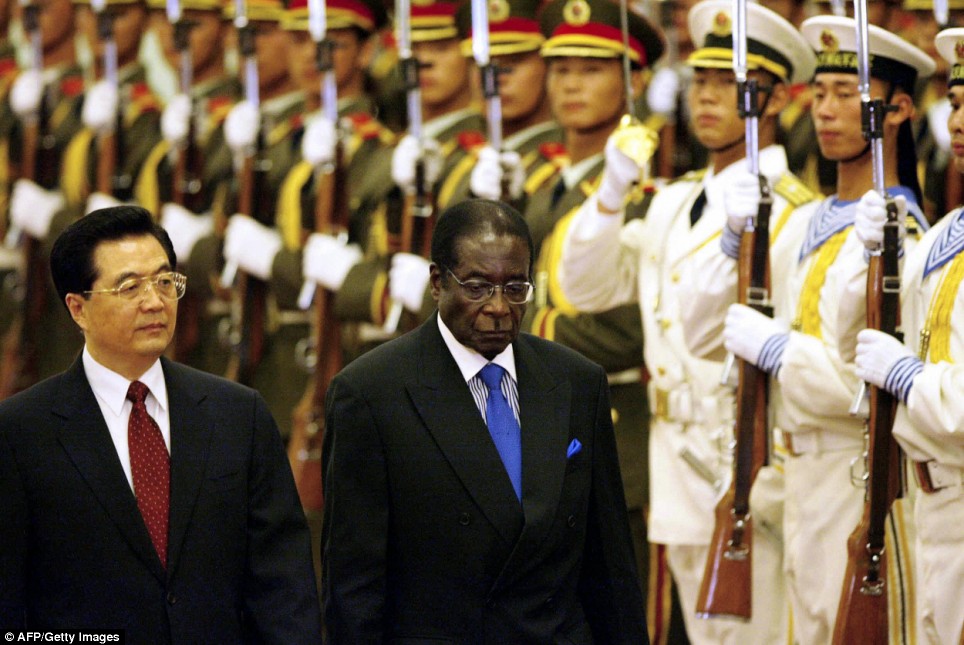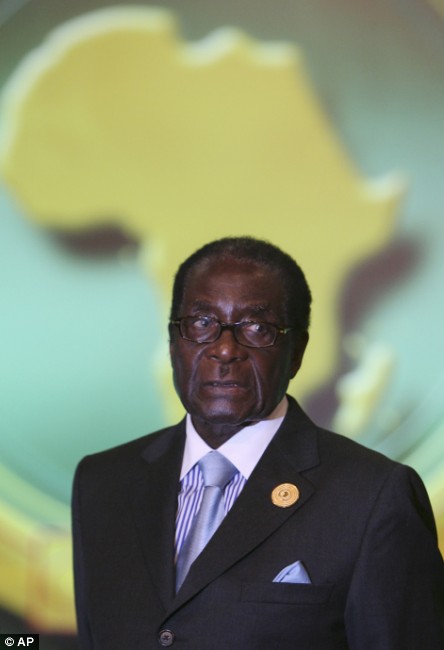Everything you said there is wrong.
I challenge you to prove me or what I wrote wrong...
Everything you said there is wrong.
I challenge you to prove me or what I wrote wrong...
Kuhani ebu deal with this man.
Maana naona labda ni balozi wa somewhere nchini Tanzania...Ama ni propagandist!
also To Bolster The Iq Argument, You Need Only Look At Almost Non-existing Inventions Coming Out Of Africa. Can Anyone Name One Significant Invention Or Contribution To Civilization Made Possible By An African? When I Say Significant I Mean An Invention Or Contribution To Civilization Of A Major Impact To Humanity. Something On Par With Principia Mathematica By Isaac Newton, Or Theory Of Relativity By Einstein, Or Solid State Transistor By William Shockley And So Forth. To Come Up With Such Contributions Or Inventions A Very High Iq Is Crucial (above 160 Points). Such High Iq Scores Are Not Found Among Africans And That's Why You Don't See Such Inventions Or Contributions Out Of Africa. A Group Or A Person's Iq Has A Major Impact In Life And Lifestyle In General And Anyone Who Argues Against That Is Not Being Realistic.
Africans must not be too proud to admit and accept their limitations. Africans must put their pride aside and face reality. There is no other reason to reject or to be against foreign powers that want exploit Africa's natural resources. Africans can't exploit Africa's natural resources by themselves for all sorts of reasons. Africans can't engineer machinery required to get these resources out of the ground, Africans can't engineer machinery to process these resources once excavated from the ground, so the only option is to let foreign powers that are capable to exploit those natural resources. Don't let pride prevent you from accepting reality. The reality is due to low average IQ, it is impossible for Africans to exploit these resources themselves.
Tusipobadilika tutaendelea kuliwa tuu hasa pale waafrika wenzetu wanapokubari kuwa vibaraka vya hao wazungu.
Ila mkuu nazani ni "scramble and partition and not scramble and pertition"
Zaire and Zambia possess 50% of world cobalt reserves, and 98% of the worlds chrome reserves are in Zimbabwe and South Africa. South Africa also accounts for 90% of reserves of metals in the platinum group (platinum, palladium, rhodium, ruthenium, iridium and osmium).


Na sasa habari ni kuwa wameshasaini makubaliano hayo...JK ZIII! NA AU Yake ya VIBARAKA!Agence France-Presse - 7/21/2008 12:40 PM GMT
Zimbabwe's parties to sign talks pact: minister

Zimbabwe's President Robert Mugabe and his bitter rival Morgan Tsvangirai were to attend the signing of a deal on Monday to pave the way for full-fledged talks between their feuding parties, in their first joint appearance for years.
The agreement will set in motion discussions on resolving the embattled country's protracted political crisis.
The two rivals are not thought to have met in public at least since Tsvangirai, a former chief trade unionist, formed his Movement for Democratic Change (MDC) at the end of 1999.
"Their last meeting was certainly long ago," said Tsvangirai's personal spokesman George Sibotshiwe.
Justice Minister Patrick Chinamasa said an agreement would be inked Monday afternoon, laying out a framework within which negotiations would be held under the mediation of South African President Thabo Mbeki.
"The signing will take place this afternoon," Chinamasa, who is also the chief negotiator for Mugabe's ZANU-PF party, told AFP.
Mbeki was met by Mugabe when he arrived in Zimbabwe to oversee the signing.
"The memorandum represents a positive step forward in the ongoing dialogue among the parties as facilitated by President Mbeki acting on behalf of SADC," said a South African foreign ministry statement
"Of course the president (Mugabe) will be there for the signing ceremony," Chinamasa told AFP.
A member of the MDC, who asked not to be named, said: "Yes, Morgan is going to be signing the memorandum of understanding personally but before that he is going into a standing committee meeting."
The signing of the pact comes after a series of meetings between Mbeki, the rival parties and officials from the United Nations and African Union.
UN special representative to Zimbabwe Haile Menkerios and African Union commission chairman Jean Ping, who met with the parties over the weekend, had both earlier expressed confidence the pact would be signed.
Menkerios said the draft, once signed, would clear the way for actual talks on the future of the crisis-ridden country to take place.
The 14-nation Southern African Development Community (SADC) which mandated Mbeki to mediate the Zimbabwe crisis in March 2007, said it hoped the talks would yield a result before a meeting of the bloc's leaders in August.
"Our hope is to see Zimbabwe's problems resolved even before the summit next month in South Africa," the head of the organisation's politics, defence and security organ, Tanki Mothae, said.
"Our hope is that they will agree on a principle ... that talks will go ahead and all other issues that are provided for in the MoU should be implemented," Mothae told South African public radio. "It is our hope that they will live up to their commitments."
International pressure for the parties to negotiate intensified after Mugabe won a one-man presidential run-off, after it had been boycotted by Tsvangirai because of a wave of deadly attacks against his supporters.
The memorandum of understanding was to be signed last Wednesday, but Tsvangirai backed out as he pushed for other players to be brought into the mediation process alongside Mbeki.
The opposition leader has rejected the idea of a national unity government in favour of a transitional phase leading to fresh elections, demanding the release of political prisoners, the cessation of violence and an additional mediator from the AU.
Mugabe, 84, who has ruled the former British colony since independence in 1980, has for his part insisted that the MDC has to acknowledge his victory in the run-off if there is to be any kind of power-sharing deal.
Zimbabwe rivals sign talks pact

Zimbabwe's President Robert Mugabe and opposition leader Morgan Tsvangirai signed a framework agreement Monday which paves the way for fully-fledged talks on ending a protracted political crisis.
The two men signed a memorandum of understanding at a ceremony overseen by South African President Thabo Mbeki, the region's long-time mediator between Mugabe and Tsvangirai's rival parties.
Mbeki said all parties wanted a rapid resolution to their dispute sparked by elections in March.
"It commits the negotiating parties to an intense programme of work to try and finalise the negotiations as quickly as possible," said Mbeki.
"All the Zimbabwean parties recognise the urgency of the matters they are discussing and all are committed to trying to complete this process as quickly as possible."
Baada ya wazungu kubanwa na kuambiwa kuwa watanyanganywa hata viwanda walivyovyonavyo...Wameamuwa kumwambia Tsivangirai anayesapotiwa na JK kuwa asaini makubaliano ya mazungumzo na pia amtambuwe Mugabe kama Rais wa ZIMBABWE Tangia awapore mabosi wa Tsivangirai Taifa hilo mwaka wa 1980.
Na sasa habari ni kuwa wameshasaini makubaliano hayo...JK ZIII! NA AU Yake ya VIBARAKA!
ITS TIME FOR AFRICA TO COME TOGETHER!
Starting with Tanzania...Kwani Taifa letu limekuwa likitowa dira ya mwelekeo wa Bara letu la Africa lakini hata kina Mandela na Mbeki na kina Mugabe wanajuwa tuna vibaraka wala rushwa MADARAKANI!
WATANZANIA AMKENI!